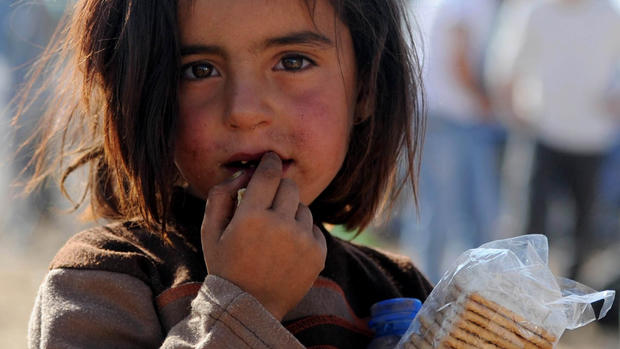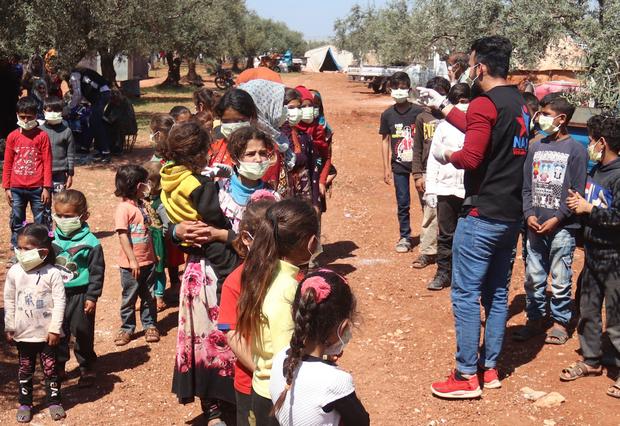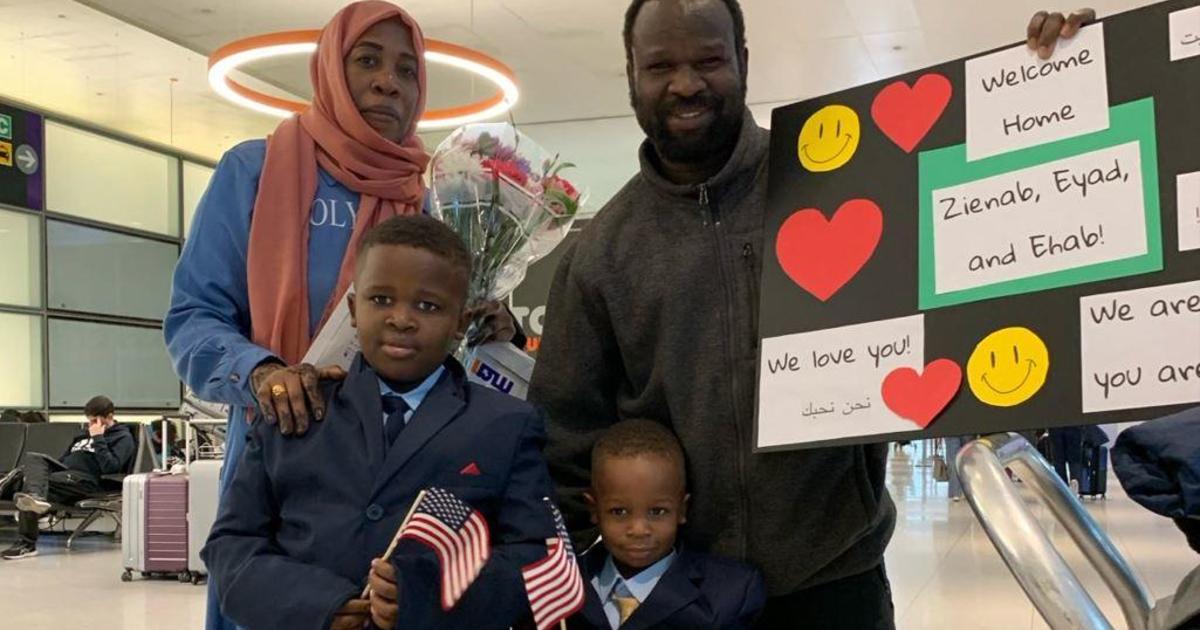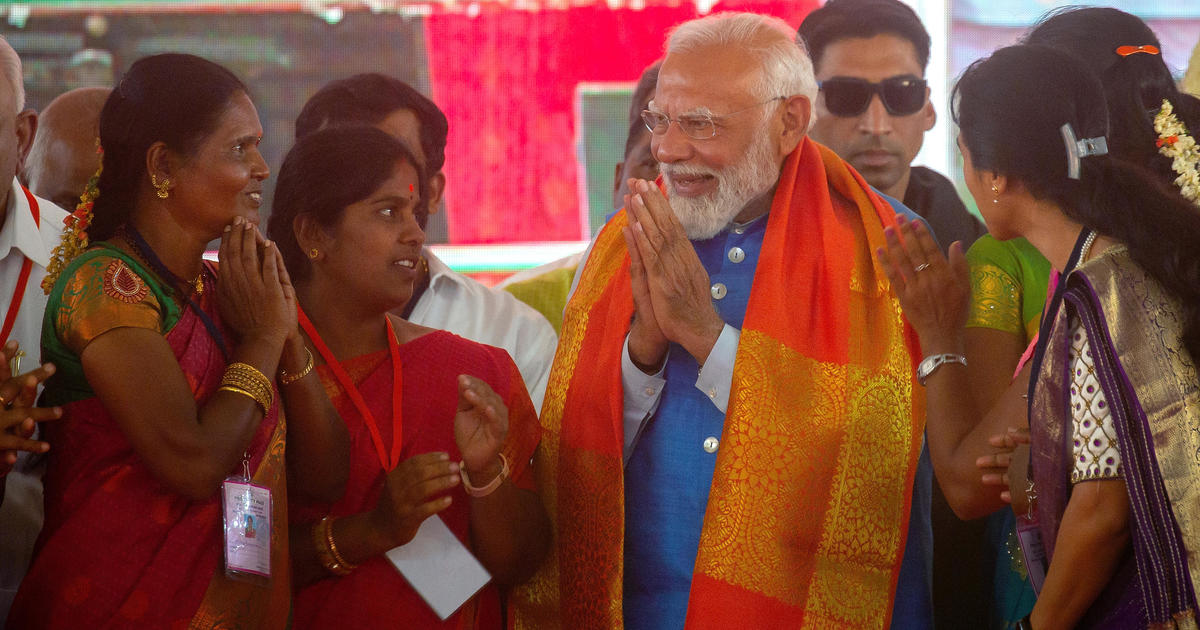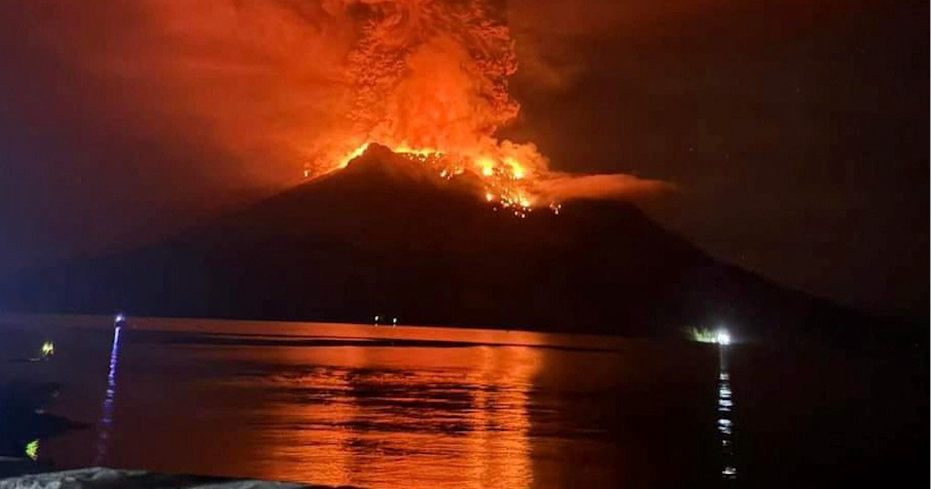Coronavirus could kill 100,000 in Syria's last rebel enclave, officials warn
Istanbul — Hundreds of thousands of Syrians who have survived nine years of civil war and waves of indiscriminate bombing now face a growing threat from a new, silent, invisible enemy: the coronavirus. The roughly 3 million people who live in Syria's northwest Idlib province have very little to defend themselves against the global pandemic.
Local doctors are urging the international community to step up efforts to help prevent what is already a humanitarian disaster becoming a complete catastrophe.
An outbreak in Idlib could kill 100,000 people in the region, according to health officials there.
The province is the last rebel-held area in Syria, and since December Syrian and Russian airstrikes have forced almost 1 million civilians to flee toward the Turkish border. A fragile ceasefire is currently in place.
Thousands have been forced to flee their homes and are now living in makeshift shelters and overcrowded camps, where self-isolation is an unattainable privilege.
As of Wednesday health workers had tested 166 people for COVID-19 in Idlib, including some tests in the crowded camps, and there have been no positive tests yet, but Dr. Ihsan Eidy, who works there, says once it arrives, the virus will spread fast among the displaced population.
"If you advise a person who got infected to isolate himself in a room and [say] don't be in touch with other family members, how could he do this if he is living in one tent with 10 members of the family? It is impossible," Eidy told CBS News.
The Syrian government has confirmed only about 30 cases across the territory it controls, with just two fatalities according to the Health Ministry.
While it would be impossible to maintain social distance in the camps, even meeting the most basic hygiene standards to prevent the spread of the virus would be a major challenge. In most camps there's no running water; residents get water from a shared tank. Soap, and certainly disinfectants, are luxuries for many of the displaced who can barely get enough food.
Local aid groups in Idlib are concentrating their efforts to try to ward off potential coronavirus outbreaks in the camps. The White Helmets, a group better known for digging survivors out of rubble after airstrikes, now works to disinfect the camps, but otherwise there are few to no resources to try and address a contagious disease.
Syrian government airstrikes have targeted hospitals and healthcare infrastructure in Idlib for months. The World Health Organization has said that 84 health facilities have been forced to suspend services since December alone, and only 31 of those have managed to relocate to areas where they can continue to provide care to the local population.
In the facilities that have survived, there are only 127 intensive care beds and 47 ventilators, according to Idlib health officials.
The officials tell CBS News the international community has been slow to respond to the situation. The World Health Organization recently sent 5,000 COVID-19 tests to the province, and health workers are still waiting for personal protective equipment like masks and gloves.
"We need deeds not words. We need ventilators, we need these centers which WHO promised; they promised 298 centers to isolate people. They also promised three ICUs," Eidy told CBS News.
He noted that the COVID-19 pandemic was challenging even the most developed nations in the world, and he was soberly realistic about Idlib's capabilities.
"The United States - the strongest country in medicine, science, in military, in all this - can't cope with it," he said. "All we can do is to try to prevent this infection, to deal with it if it happens. It would be a disaster."
